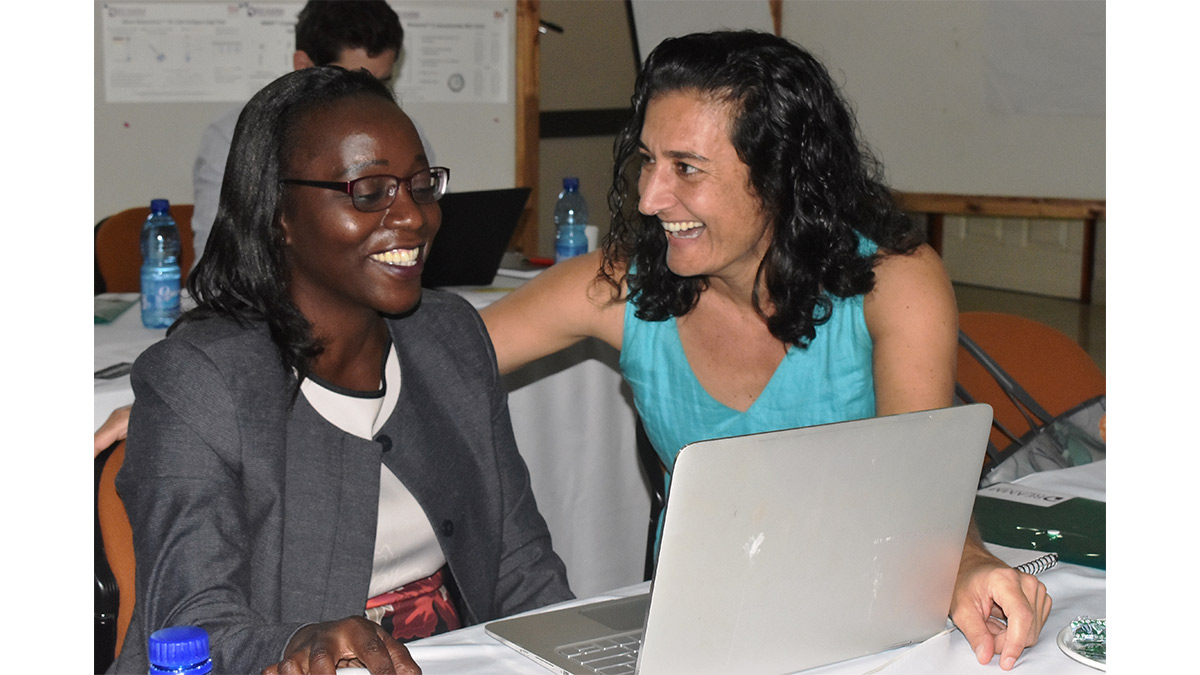In Malawi, health care by women, for women
Carolina researcher Mina Hosseinipour is leading a study to determine whether an injectable drug could prevent HIV in women.

A University of North Carolina at Chapel Hill researcher is working to extend the life expectancy of more than half a million people in Malawi who are HIV positive, starting with some of the most vulnerable patients: women.
While working with UNC-Project Malawi, a partnership between Carolina and the Malawi Ministry of Health to improve health outcomes country-wide, Dr. Mina Hosseinipour noticed an alarming pattern. HIV prevention methods that have been successful in men are rarely as successful in women.
“Some of the methods that have come out just don’t work as well in women because of biologic factors, and then you put that on top of these power dynamics and social and economic issues that affect women broadly,” said Hosseinipour, a professor in the School of Medicine and the scientific director of UNC-Project Malawi. “We’re looking at prevention methods that will give the power back to women.”
Hosseinipour is the co-chair of a new study to determine whether an injectable HIV drug given every eight weeks could be the answer to preventing HIV in women more broadly, ultimately preventing transmission.
One option for women is a daily preventative pill, but in Sub-Saharan Africa, the stigma associated with taking a regular medication discourages many women from choosing this route. Even having a pill bottle in the house may imply that a woman is HIV positive or is engaging in certain risk behaviors.
“We’re fortunate to have contraception as a sort of comparator,” Hosseinipour said, noting that when given a choice between a daily contraceptive pill or an injection, nearly 90 percent of Malawian women choose the injection. “The more options you have for a woman, the more likely she will be to be able to fit that into her day-to-day activities, and we want the same for HIV prevention.”
If Hosseinipour’s injection is successful, the drug would help prevent HIV transmission from women in Malawi, nearly 13 percent of whom live with HIV.
“It’s an exciting study,” she said. “It would be quite transformative if it’s shown to be more effective than the oral pills because it would really expand prevention for women in a way that I think would be acceptable to them.”
UNC-Project Malawi isn’t just transforming the lives of patients with HIV, it’s also changing Malawi’s health care industry itself. The organization aims to strengthen health systems across the country, focusing on everything from cancer management to neonatal care. To reach that goal, the organization trains local clinicians to lead their studies and health interventions.
“I’ve been able to work with this wonderful group of Malawian investigators who have become independent leaders, and I think that’s what the real mission is,” Hosseinipour said.
Innocent Mofolo, operations manager of UNC-Project Malawi, said Hosseinipour has empowered local doctors to make lasting change to health care across the country, both as expert physicians and as policymakers.
“Mina has been the pillar of our operations, providing support and mentorship for physicians in Malawi,” Mofolo said. “A lot of the young doctors and clinicians she has mentored have ended up becoming leaders in their field of expertise or taken up leadership positions in government.”
Hosseinipour hopes the research done at the 20 sites she oversees will benefit hundreds of thousands more people over the next decade.
“A lot of our research over time has been adopted at the country level, and to see it being incorporated and really reducing HIV transmission is very satisfying,” she said. “That’s been a high point for so many of us.”




